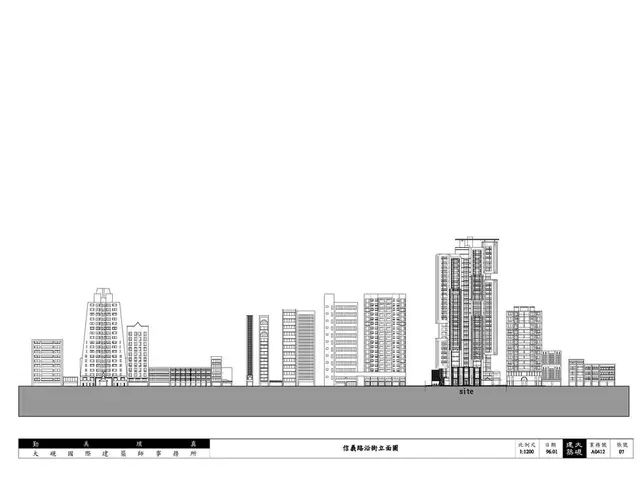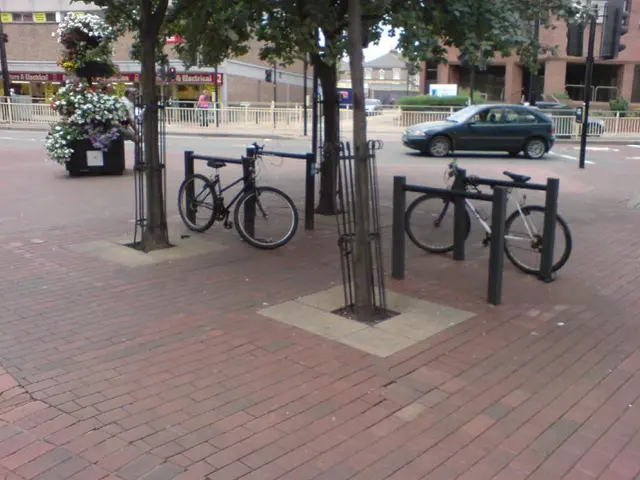Cracking Down at the German-Danish Border: A Closer Look at Federal Police Controls
Expansion of border controls at the German-Danish frontier is underway. - Enhancement of Inspections at the German-Danish Frontier
It's a shift on the ground at the German-Danish border, as the Federal Police beefs up its presence and efforts. Since mid-September 2021, controls have become more frequent and staffed by additional personnel, according to a spokesperson for the Federal Police Directorate in Bad Bramstedt. These moves, ordered by the Federal Ministry of the Interior, are a response to a tightening of border control policies announced by the new Federal Minister of the Interior, Alexander Dobrindt (CSU).
The beefed-up border checks may lead to the turnback of asylum seekers who have already submitted applications in other EU countries. However, this policy doesn't apply to vulnerable groups, such as pregnant women, children, and others requiring special protection.
Fluid traffic is a critical aspect of cross-border commuting in the German-Danish region, and authorities are committed to ensuring it remains unhampered.
The move to reinforce the border has sparked debate among political parties. The Social Democrats in Schleswig-Holstein, for instance, remain firmly against such controls. MP Birte Pauls opines that the progress achieved through European integration should not be jeopardized.
Behind the Scenes: The driving forces and consequences
The expansion of federal border controls in the Schengen zone is part of a broader plan by European countries to curb irregular migration and boost national security [1]. This includes Germany and Denmark, both of which are grappling with concerns over terrorism, cross-border crime, and the management of immigration flows.
The increased border surveillance and controls aim to provide authorities with effective tools to combat terrorism and cross-border crime, including the use of drones, automatic number plate recognition systems, and increased patrols [2][4]. In the migration management context, countries are strengthening their checks for undocumented migrants, enforcing deportation policies more rigorously, and temporarily halting family reunification programs [1].
The reinstatement of internal border controls can impact the principle of free movement among EU member states, potentially causing logistical challenges and economic implications due to increased travel times and scrutiny [1].
Various political parties have weighed in on the issue. In Germany, some view border controls under Chancellor Friedrich Merz as a shift toward stricter immigration policies, resonating with conservative or right-leaning political views. Opposition parties might criticize these measures as a violation of European unity and the free movement principles [5].
In Denmark, the ruling parties back the extension of controls as a necessary security measure, while opposition parties may express concerns about potential impact on trade, tourism, and associated costs [5].
At the European level, opinions are mixed, with leaders worrying about stepping back from Schengen principles while others view the measures as a vital move to ensure security and maintain public trust [5]. The expansion of federal police controls at the German-Danish border reflects a contentious political landscape, marked by conflicting priorities in security, migration, and EU integration.
[1] European Commission. (2020). Communication from the Commission to the European Parliament, the Council, the European Economic and Social Committee and the Committee of the Regions: The European Border and Coast Guard Agency: Operating a Coordinated European Approach to Border Management.
[2] Danish Police. (2020). Border Control. Retrieved from https://politi.dk/om-politiet/afdelinger/gransepoliti/granser
[3] German Federal Police. (2021). Schengen Information System. Retrieved from https://www.bundespolizei.de/EN/Topics/Europol/SIS.html
[4] European Council on Refugees and Exiles. (2020). Denmark's Temporary Border Control Measures: Prolonging the Exception.
[5] EU Observer. (2021). German conservative MEP Friedrich Merz wants new border controls with France. Retrieved from https://euobserver.com/nominated-meps/152043
- The new policy announced by the Federal Minister of the Interior, Alexander Dobrindt, calls for a tightening of border control policies, including an increased presence of the Danish Federal Police at the German-Danish border.
- Vocational training programs are integral to the community policy, with both Germany and Denmark focusing on boosting national security through such initiatives, including the use of drones, automatic number plate recognition systems, and increased patrols.
- The expansion of border controls in the Schengen zone, such as those at the German-Danish border, could have economic implications due to increased travel times and scrutiny, affecting aspects like trade and tourism, as suggested by various political parties.
- Controversies surrounding the directive to strengthen border controls at the German-Danish border reveal a complex political landscape in which security, migration, and EU integration priorities are at odds, providing a fertile ground for debate within policy-and-legislation and general-news circles.







